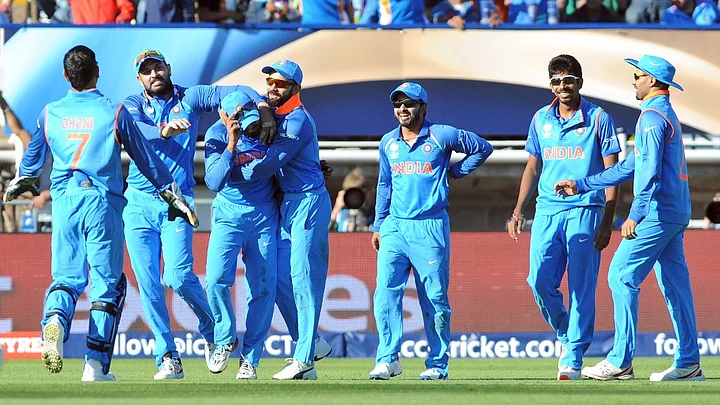Imran Khan’s in-dipper used to be unplayable. Wasim Akram’s out swinger would be too much to handle. Zaheer Abbas had this habit of hitting centuries every time he would come out to bat against India. Even Mudassar Nazar, the least flamboyant of them all with very limited talent, was a tough nut to crack. And Javed Miandad’s audacious six off the last ball of Chetan Sharma in Sharjah had tormented a whole generation of cricket fans back home.
But that was in the 1980s. The rampaging Pakistani team led by charismatic Imran Khan used to regularly beat us.
With the likes of Sunil Gavaskar, Dilip Vengsarkar, Mohinder Amarnath and Kapil Dev in our ranks, ours was a decent enough team. But we could win just 9 of the 30 one-day matches against Pakistan in the 80s. It used to be a one-sided affair even in test matches also.
Growing up watching India-Pakistan matches going their way, the outcome of Sunday’s Champions Trophy match at Edgbaston, when we beat Pakistan by a record margin in the opening match, was very pleasing. More so, considering that we have beaten them 13 out of 15 matches in the ICC sponsored tournaments till date. Now India beating Pakistan – both in cricket and hockey – has become a boringly regular feature.
Pakistan Had Podium Finish in Olympic Hockey for 36 Years
Why has the balance shifted our way, especially since 2000, after years of disappointing outcomes? Pakistan’s domination in hockey started way back in the 1960s. Pakistan had had a podium finish in all Olympic Games from 1956 to 1992 (except the 1980 Moscow Olympics, which Pakistan had boycotted).
It won the inaugural World Championship in 1971 and won many more in subsequent years. India-Pakistan hockey matches too had become one-sided affairs in the 80s and the 90s. The likes of Hassan Sardar, Samiullah and Kalimullah were perhaps too skilful to handle.
1991 Economic Reforms Tilted the Balance in India’s Favour
Incidentally, the 80s were good years for Pakistan’s economy too. The average growth rate in the decade was close to 7 percent, much higher than India’s average of nearly 5 percent. While Pakistan’s economy faltered in subsequent years, ours got a boost in 1991 after the launch of a slew of economic reforms.
Convergence in growth rates in the 1990s had its reflection in cricket matches featuring the two teams. We played 45 one-day matches against each other in the 1990s, with India winning 17 of them, while 26 went Pakistan’s way. Two matches ended in draw. It was more of a balanced affair in the 1990s, thanks to the convergence of growth rates in the two countries.
The gap in growth rates of two neighbours began to widen in the 21st century. In fact, since 2003, we have grown much faster than Pakistan during most years. As a result, our per capita income now is 25 percent more than the per capita income of an average Pakistani. There was nothing to choose between the two countries on this parameter only 10 years ago.
Growing Economy Boosts Confidence
Growing economy obviously means better infrastructure for sportspersons and lucrative sponsorship deals. Cricketers in India never lacked them though, thanks to the kind of popularity the game enjoys.
What has changed is the rising confidence level of the post-liberalisation brigade, assured as they are of more opportunities at hand. It is the confidence of players that makes a huge difference in almost evenly matched India-Pakistan fixture.
We have to remember that what even the great Sachin Tendulkar could not do, especially in India-Pakistan matches, has been done by the likes of Virat Kohli Mahendra Singh Dhoni and Yuvraj Singh, all members of the post-liberalisation brigade.
While we play fewer matches against Pakistan now than what was the case earlier, the probability of our side coming on top has gone up several notches. We have had several instances of recent matches where players like Virat Kohli have walked away with wins from seemingly improbable situations. It has been a welcome departure from the past.
Since 2010, we have played 10 one-day international matches and won 7 of them, tilting the balance decisively our way. Chances are the ratio is going to improve even further, if the domination of the Indian team in recent years is any indication. The win against Pakistan seems like a boring headline now, but it is kind of sweet revenge for someone like me who started following India-Pakistan matches in the 1980s.
